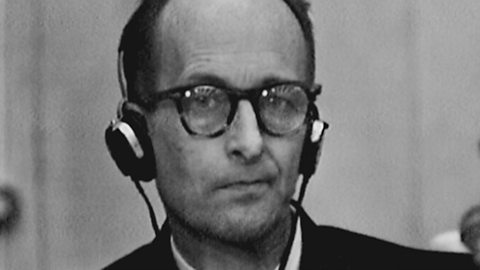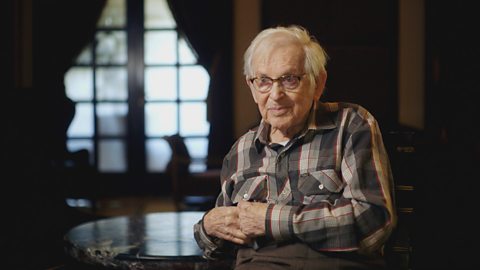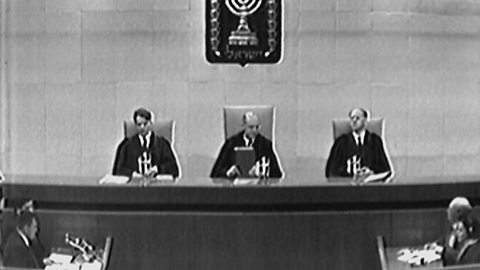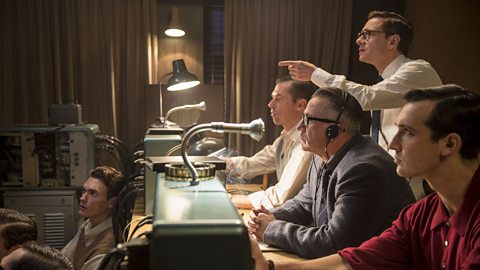Video summary
The televised trial of Adolf Eichmann brought to a global audience many of the previously unknown horrors of the Holocaust.
And on 11th December 1961, Eichmann, sitting impassive and unemotional, was pronounced guilty of all charges against him and sentenced to death.
But how far can responsibility for the Holocaust be attributed to Eichmann? Was it right to blame Eichmann for it all?
This short film explores the background to the Nazi paranoia about a Jewish conspiracy to take over Germany and Eichmann's responsibility for the 'de-Jewification' of Germany leading up to World War Two.
Historian, Professor David Cesarani examines the evidence, analysing how Eichmann presented himself as hapless, with no choice, following orders, and it was not for him to question the instructions of the ‘big bosses’.
However, he eventually gave away his personal hatred for the Jewish people under the pressure of cross-examination.
This short film is from the 91»»±¨ series, The Eichmann Show.
Due to the sensitive nature of the subject matter, we strongly advise teacher viewing before watching with your pupils.
Teacher Notes
Nazi bureaucrat, Adolf Eichmann, organised the killing of thousands, without a sense of its wrongness. And his defence was reasonably straightforward: Adolf Eichmann was sincere in thinking his acts were defensible – following orders, inability to ignore his superiors, what could he have done otherwise, etc.
Possible questions for class:
- Did Eichmann believe he had a reasonable chance of being found innocent by the court?
- Once in Israel, why did Eichmann cooperate in the judicial process?
- Were the three judges presiding over the Eichmann trial likely to give him a fair trial?
- Why did the United Nations vote to accept Israel's right to keep Eichmann and put him on trial?
- Discuss the sentence handed down to Eichmann. Would there have been any value in giving him a life sentence?
- The trial of Adolf Eichmann in 1961 was at a time when many Nazi war criminals were still on the run from justice. Is there any value in continuing to search for Nazi war criminals in the 21st century? Is there a value in putting old men, or women, on trial?
This short film will be relevant for teaching history. This topic appears in OCR, Edexcel, AQA, WJEC KS4/GCSE in England and Wales, CCEA GCSE in Northern Ireland and SQA National 4/5 in Scotland.
Adolf Eichmann: Architect of the Holocaust. video
Using a combination of archive footage, dramatisation and interviews with people involved in the television production and the trial, this short film introduces students to the groundbreaking trial of Adolf Eichmann.

How Adolf Eichmann's trial revealed the horrors of Auschwitz. video
Historians and witnesses explain how the Adolf Eichmann trial was a turning point for Holocaust survivors who found that their testimonies were being taken seriously for the first time.

The Eichmann trial and the State of Israel video
The trial of Adolf Eichmann was an important moment in the development of the State of Israel which was just 13 years old in 1961.

Managing evidence and the challenge of recording the trial of Adolf Eichmann. video
The trial of Adolf Eichmann in 1961 was the first documentary television series to be broadcast around the world. It was a ground-breaking moment and revealed the tragedies of the Holocaust and the deaths of some six million Jews.
